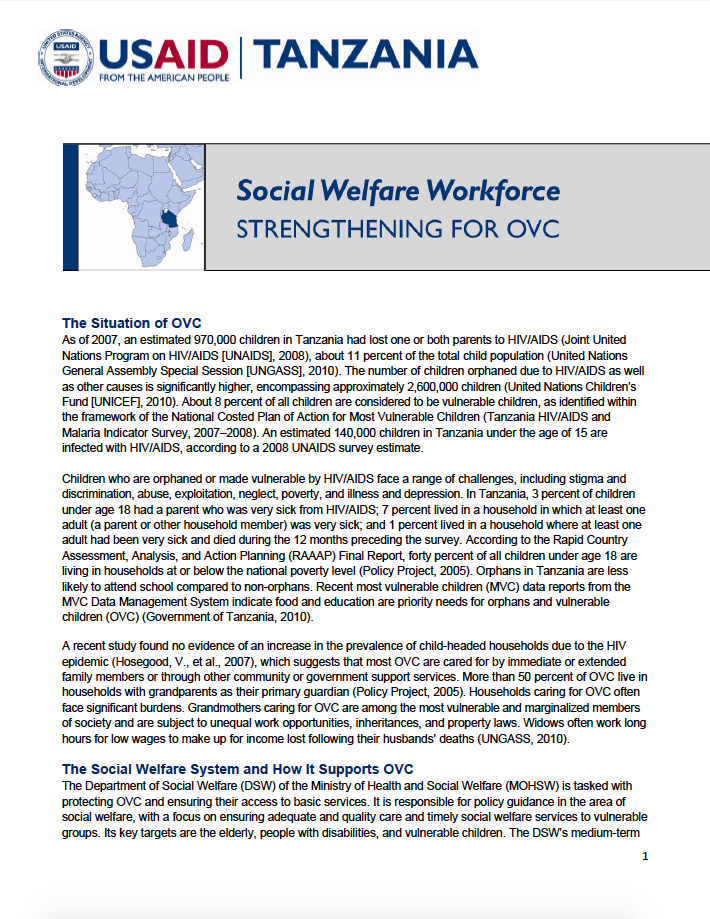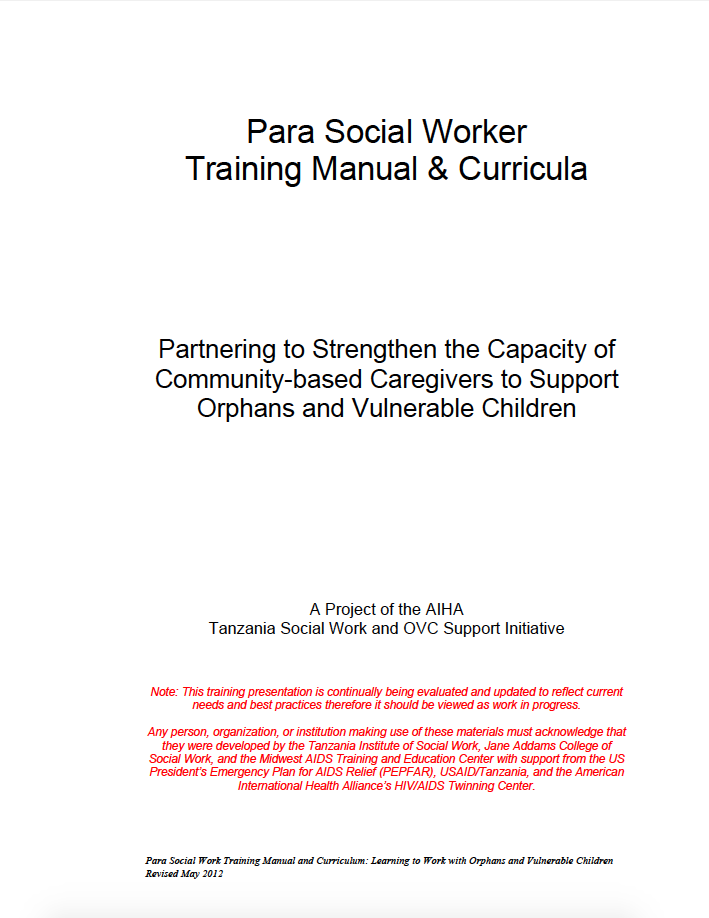Summary:
The Tanzania Para Social Work Program represents a comprehensive workforce development model to strengthen the social welfare system in low-resource countries. The program was developed to equip caregivers and their supervisors with critical knowledge and skills that strengthen their ability to provide care and support to vulnerable children and their families, particularly in communities most affected by HIV/AIDS.
The year-long training program teaches basic social work and child development skills that empower community-based workers and volunteers by improving their ability to identify, assess, engage, and link those in need to existing care and support services.
The intent of the curriculum is to introduce Para Social Workers to the basic concepts, processes, and helping skills that underlie all interventions with children and families, thus providing a foundation for effective intervention with this population. The Para Social Work Program gives community-based workers a basic knowledge of:
- Social work practice;
- Human behavior and development in the social environment, especially focusing on vulnerable children and families; and
- HIV disease including prevention, counseling and testing, treatment access and issues, and related familial, social, and community advocacy.
The emphasis of the program is on skills development. Therefore, theoretical and conceptual material is presented to support its application to working with children and families. Additionally, training methods employed emphasize active, practical skills development and experiential learning. Participants are given numerous opportunities to practice skills presented in the class setting to facilitate their transfer to real-life work with children and families. Participants in the Introduction to the Para Social Work course complete a workbook demonstrating their mastery of the skills included in the curriculum.
This Para Social Work Program includes three stages to achieve basic Para Social Work skills.



